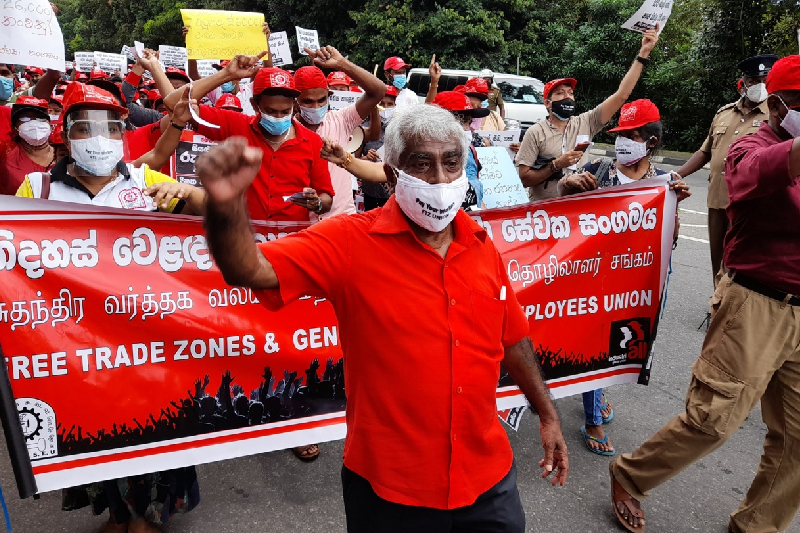

Sri Lanka's cabinet, in a move reflecting the government's reaction to the nation's financial challenges, has endorsed a considerable increment within the minimum wage
Sri Lanka’s cabinet, in a move reflecting the government’s reaction to the nation’s financial challenges, has endorsed a considerable increment within the minimum wage. This choice marks a critical step towards supporting laborers who have been hooking with the financial aftermath from the country’s later budgetary emergency. The declaration, made by cabinet representative and Transport Minister Bandula Gunawardana, signals the administration’s commitment to meet the squeezing needs of its citizens as the economy navigates a way to recuperation. The affirmed wage increment, measuring 40%, will see the minimum wage rise from its current level of 12,500 rupees ($42) to 17,500 rupees.
Financial aftermath from money-related emergency
The scenery against which this choice unfurls is the financial emergency that has grasped Sri Lanka’s economy since 2022. This emergency was activated by a sharp fall within the nation’s external trade savings, which led to confrontation of financial challenges counting the swelling rates, cash deterioration, and a default on remote obligation commitments. The repercussions of these financial disturbances have been profoundly felt by citizens over the nation, with numerous facing increased financial strain and instability around their financial prospects. In reaction to these challenges, the government has been effectively seeking measures to stabilize the economy and ease the burdens faced by its citizens.
Effect on Destitution Lightening and Family Wage
The endorsement of the minimum wage increment holds critical suggestions for destitution easing endeavors and family livelihoods in Sri Lanka. With the normal month to month family salary for the poorest 20% of the population drifting around 17,572 rupees, the wage increment speaks to a considerable boost for people and families battling to form close bonds. This rise in pay has the potential to lift numerous family units out of destitution and give them with more prominent monetary security and steadiness. Furthermore, the recent information has underscored the increased budgetary defenselessness experienced by a larger part of families within the repercussions of the emergency. This information highlights the critical requirement for measures to move forward financial solidity and employment for all citizens, especially those who are most influenced by the financial downturn.
Challenges within Financial Recuperation
In spite of signs of financial stabilization, noteworthy challenges stay on the way to full recuperation for Sri Lanka’s economy. While the nation has profited from a $2.9 billion program given by the International Monetary Fund (IMF), obstacles such as vitality cost cutting proceed to posture challenges for citizens. These advancements have excessively influenced the foremost powerless fragments of society, compounding the current tricky money related circumstance confronted by numerous people and families. In reaction to these challenges, protests have emitted within the capital city of Colombo, with college students and trade unions requesting critical activity to address the rising fetch of living and ensure impartial financial recuperation.
Blockades on the borders of the country are to be put in place on April 28 if they do not…
After putting a 12% import tax on steel items for 200 days the Indian steel sector begins its path to…
To resolve the deepening crisis of Afghanistan, which is the displacement of local people as the migrants, a collaborative meeting…
The HSR project to connect Kuala Lumpur and Singapore creates better transportation for all regional areas in Malaysia. Government records…
Scottish Water staff started their 48-hour work strike at midnight due to their escalating pay negotiation problems with the organization.…
The Trump administration has selected Kansas City as its main destination to test federal workforce reduction measures. Through the leadership…
This website uses cookies.
Read More